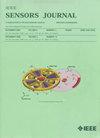Bootstrap and High-Degree Cubature Particle Filters for Nonlinear Systems With Correlated Noise and Missing Measurements
IF 4.3
2区 综合性期刊
Q1 ENGINEERING, ELECTRICAL & ELECTRONIC
引用次数: 0
Abstract
In this article, the particle filtering problem is investigated for nonlinear systems with correlated noise and missing measurements (MMs). By accounting for both correlated noise and MMs, a novel explicit weighting expression is presented. Based on this weighting scheme, a new bootstrap particle filtering algorithm is designed to address such influence. Furthermore, to limit the particle degradation suffered by the bootstrap particle filter (PF), a novel importance function based on the Gaussian optimal filter is presented. To perform the numerical integration required by the Gaussian optimal filter, the fifth-degree spherical-radial cubature rule (FSRCR) is used to acquire a novel importance function. Consequently, a novel high-degree cubature particle filtering algorithm is developed for these systems. Simulation experiments show that the two proposed algorithms significantly improve estimation accuracy, with notable performance gains over the existing unscented Kalman filter (KF), especially as the sample size increases.具有相关噪声和缺失测量的非线性系统的自举和高度立方粒子滤波
本文研究了具有相关噪声和缺失测量的非线性系统的粒子滤波问题。在考虑相关噪声和mm的基础上,提出了一种新的显式加权表达式。在此加权方案的基础上,设计了一种新的自举粒子滤波算法来解决这种影响。在此基础上,提出了一种基于高斯最优滤波器的重要函数,以限制自举粒子滤波器的粒子退化。为了实现高斯最优滤波所需的数值积分,采用五度球径向定容规则(FSRCR)获得新的重要函数。在此基础上,提出了一种新型的高次培养粒子滤波算法。仿真实验表明,这两种算法显著提高了估计精度,与现有的无气味卡尔曼滤波(KF)相比,性能有显著提高,特别是当样本量增加时。
本文章由计算机程序翻译,如有差异,请以英文原文为准。
求助全文
约1分钟内获得全文
求助全文
来源期刊

IEEE Sensors Journal
工程技术-工程:电子与电气
CiteScore
7.70
自引率
14.00%
发文量
2058
审稿时长
5.2 months
期刊介绍:
The fields of interest of the IEEE Sensors Journal are the theory, design , fabrication, manufacturing and applications of devices for sensing and transducing physical, chemical and biological phenomena, with emphasis on the electronics and physics aspect of sensors and integrated sensors-actuators. IEEE Sensors Journal deals with the following:
-Sensor Phenomenology, Modelling, and Evaluation
-Sensor Materials, Processing, and Fabrication
-Chemical and Gas Sensors
-Microfluidics and Biosensors
-Optical Sensors
-Physical Sensors: Temperature, Mechanical, Magnetic, and others
-Acoustic and Ultrasonic Sensors
-Sensor Packaging
-Sensor Networks
-Sensor Applications
-Sensor Systems: Signals, Processing, and Interfaces
-Actuators and Sensor Power Systems
-Sensor Signal Processing for high precision and stability (amplification, filtering, linearization, modulation/demodulation) and under harsh conditions (EMC, radiation, humidity, temperature); energy consumption/harvesting
-Sensor Data Processing (soft computing with sensor data, e.g., pattern recognition, machine learning, evolutionary computation; sensor data fusion, processing of wave e.g., electromagnetic and acoustic; and non-wave, e.g., chemical, gravity, particle, thermal, radiative and non-radiative sensor data, detection, estimation and classification based on sensor data)
-Sensors in Industrial Practice
 求助内容:
求助内容: 应助结果提醒方式:
应助结果提醒方式:


